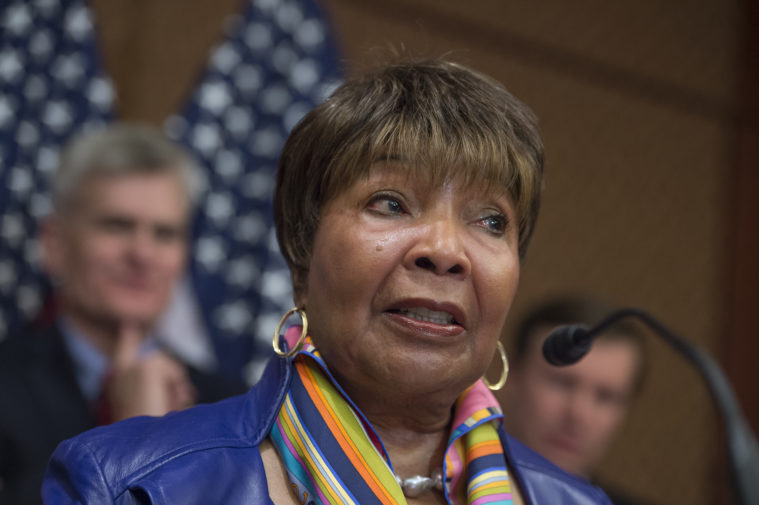
Can Battleground Texas Overcome Staff Exodus?

Above: High-profile organizing group Battleground Texas is having difficulty retaining its staff after last year’s crushing electoral defeats.
It’s mid-summer, after the legislative session and before the proper start of next year’s election cycle, which means the state’s political organizations are in full churn. Politicos of all stripes are leaving politics for policy or vice versa, getting fired and promoted, and maybe leaving the game—or the state—altogether. That’s a normal part of life in politics, where jobs are often short-term and so is loyalty.
The same holds true at the high-profile organizing group Battleground Texas, where political director Cliff Walker will be stepping down next week. It’s the latest of a number of departures by Battleground senior staff since last year’s crushing electoral defeats. Walker, who had been with the organization since the beginning in 2013, was the highest-profile Texan in the group. As the relationship between Battleground and other parts of the Democratic coalition suffered during last year’s election due to mutual distrust, it fell to Walker, respected by other Texas Dems, to try to repair things.
But since November, a lot of Battleground’s founding notables have been looking for other work. A number of Obama campaign veterans have left for greener pastures in other states, including former Campaigns Director Ramsey Reid, former Communications Director Erica Sackin, and former Field Director Victoria Zyp. Former Digital Director Christina Oliver left the organization for a job at an Austin consulting firm owned by Republican U.S. Senator John Cornyn’s former campaign manager. The departure of Walker means that a large part of the original Battleground brain trust is now gone.
Political organizations like Battleground experience a high rate of turnover naturally. And for years, there’s been something of a conveyor belt taking talented Democratic political staffers away from Texas, or out of politics altogether—options that offer more rewarding work, and usually, bigger paychecks. Former Texas Democratic Party chief Will Hailer, who party leaders expected to stay for longer than one election cycle, jumped ship shortly after last year’s election for a Washington, D.C. consulting firm.
So Battleground’s staffing issues aren’t unique—a statement from the group called them “really normal transitions,” and pointed to the continuity of Executive Director Jenn Brown’s leadership—but they could pose a greater threat to the organization than progressive groups with deeper roots in Texas. One of the talking points when the group launched concerned Battleground’s ability to attract top talent from across the nation and fuse it with in-state know-how, helped along by a dedicated source of donor money. But it will most likely be harder for Battleground to recruit top talent now.

In 2013, Battleground had sex appeal. If you were a member of Barack Obama’s blue-wave revolutionary vanguard, “flipping” Texas was an appealing and seductive goal. Now the conventional wisdom about the state’s imminent purple-fication has flipped. (Probably too far in the other direction.) But if you’re talented and you have options, the group might no longer be a first choice. And Battleground faces problems recruiting Texas talent, in part because significant mistrust still exists between other members of the Democratic coalition and Battleground.
Jeff Rotkoff, who represents one of Battleground’s largest backers, Houston mega-donor Steve Mostyn, praised Walker’s work and career and predicted he would “continue to be an important member of [the] community in whatever comes next for him.”
He told the Observer that staff turnover at Battleground is evidence the group is here to stay. “The fact is that the program works, and that neither the movement nor the model is defined by any one individual staffer. It is a good thing for Texas progressives that we are building lasting institutions—like Battleground and others—which are not defined by individual operatives, but rather by their missions and their programs.”
On or shortly after July 15, fundraising reports from Battleground and other groups in the Democratic coalition will become available, which will give us more of an idea about how they’re situated as we head toward 2016. Money aside, the coalition will have to mend fences and build a cohesive strategy to take advantage of the potential gains offered by a presidential election year.
Brown is currently developing what a statement from the group called a new “strategic plan for the organization.” In it, she’ll need to come up with fixes for a host of unresolved issues regarding Battleground’s place in the Democratic coalition. In particular, some Texas Democrats worried that Battleground would turn into an adjunct of Hillary Clinton’s 2016 campaign, to the detriment of efforts in local and legislative races. That has echoes of one of the major conflicts of the 2014 cycle—some candidates felt that Battleground’s focus on a divisive top-ticket candidate, Wendy Davis, hurt down-ballot efforts.
In the end, staff changes are less important than finding a way for the organization to work effectively with the party and candidates. We’ll soon find out if Battleground is in a position to restore some of its former luster.

